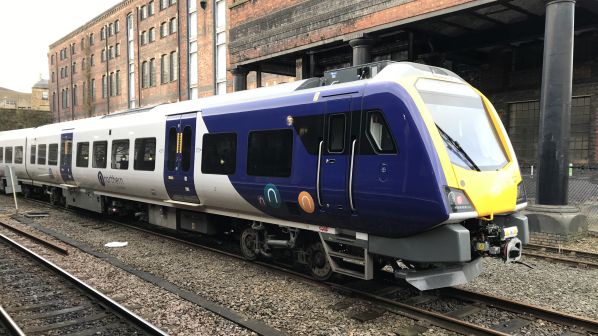Shapps says he will decide by the end of January whether to award Arriva Rail North a short-term direct award contract to continue operating the franchise or to take operations into state control under an operator of last resort scenario.
Northern encompasses commuter and regional services, serving 528 stations in an area spanning Liverpool, Manchester, Leeds, Newcastle-upon-Tyne, the Lake District, Cumbria and Yorkshire.
Arriva Rail North was awarded the nine-year contract to operate the franchise in 2015, with services getting underway on April 1 2016. However, it has suffered from poor performance throughout 2019. Northern cancelled more than 200 daily services, or 7-8% of its total, up to the December timetable change. Northern Rail and Transpennine Express were also heavily criticised for their continuing poor performance during a meeting of Transport for the North and local leaders held in Leeds on January 8.
Shapps says he made the decision after seeing the company’s most recently available financial information, which he says indicates that the franchise will only be able to continue for “a number of months.”
“Passengers in the north have had to put up with unacceptable services for too long,” Shapps says. “We understand how frustrating this has been for people and we are taking action to make sure that performance improves.”
Responding to the statement, Arriva’s managing director of UK Trains, Mr Chris Burchell, said the company accepts that services on the Northern network are not yet good enough, offering an apology to passengers. However, he says many of the issues affecting the franchise are outside of the direct control of Northern.
“Assumptions were given when the plan for the franchise was developed that critical infrastructure projects would be delivered to enable growth and support capacity demands,” Burchell says. “Many of these have either been delayed or cancelled. This, along with unprecedented levels of strike action, has had a significant impact on the franchise – both in terms of service and financial performance.”
Northern is currently engaged in a £500m fleet upgrade programme as part of a £1bn transformation of the service. The operator is in the process of introducing 101 new CAF Civity trains into service, comprising 58 class 195 DMUs (25 two-car and 33 three-car trains) and 43 class 331 EMUs (31 three-car and 12 four-car trains), which will increase the overall fleet size by 15%.
However, the operator has suffered delays with delivery of some of these trains. It is also refurbishing its remaining 624 vehicles while removing class 142 and 144 Pacer diesel railbuses from service although some of these sets remain in service despite plans for complete withdrawal in 2019.
Burchell added that the challenges experienced would occur irrespective of who is operating the service. “What is needed is a new plan,” he says. He also confirmed that the franchisee is preparing a business plan for a shorter direct award contract.
Shapps says the decision on whether to proceed with a direct award or the operator of last resort will depend on the extent to which each option performs against the following principles:
- protecting the interests of passengers
- ensuring business and service continuity
- preserving the interests of taxpayers by ensuring value for money, and
- the continued quality of the franchise proposition.
“Our value for money assessment will be based on a number of criteria, including which option returns most money to the taxpayer, the risks attached to each, and the value of any improvements in passenger services,” he says.
Shapps says a longer-term decision on the future of the franchise will be made in light of the recommendations of the Williams Rail Review.

